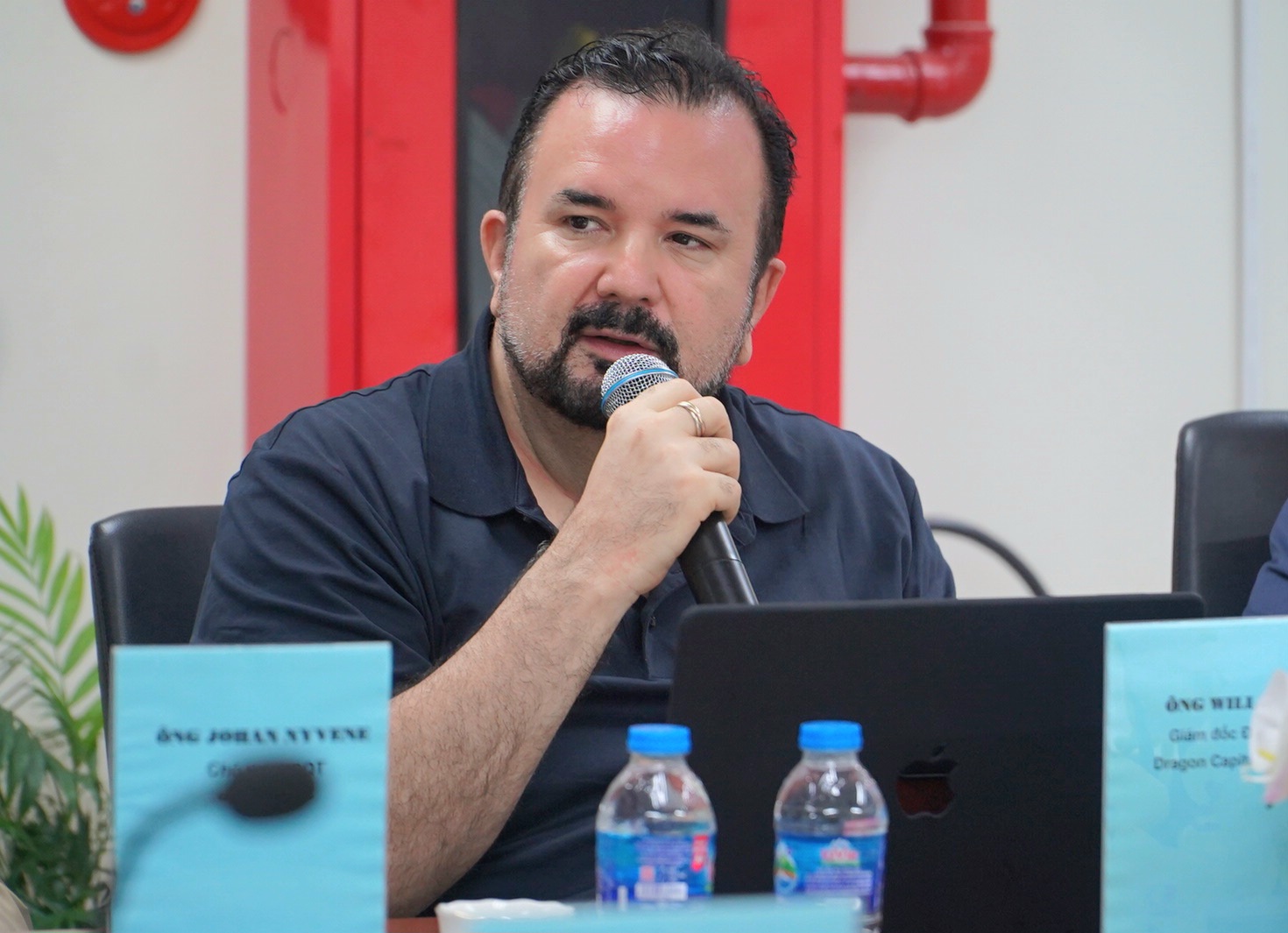At a recent symposium hosted by the Labor Newspaper, experts discussed the implementation of the Digital Technology Industry Law and the draft decree on piloting digital assets. Will Ross, director of marketing and distribution at Dragon Capital Vietnam, argued that lawmakers should foster an environment where investors feel secure investing in diverse assets, not just traditional ones like gold.
"We need a legal framework that allows investors to buy a token with the same confidence they have in buying gold," he stressed.
Ross traced Vietnam's international trade history from agricultural products to manufactured goods within global supply chains. However, both sectors offer low profit margins. He believes it's time for Vietnam to focus on digital technology products, which can yield higher profits.
 |
Will Ross, director of marketing and distribution at Dragon Capital Vietnam. Photo courtesy of the organizers |
Will Ross, director of marketing and distribution at Dragon Capital Vietnam. Photo courtesy of the organizers
Richard Teng, CEO of Binance, the world's largest cryptocurrency exchange, also participated. As of June, Binance held over 41% of the global daily cryptocurrency trading volume. He highlighted the rapid global adoption of digital assets, regardless of regulations, calling it an irreversible trend. Leaders in the US, the world's largest economy, are "betting" on blockchain, and major financial institutions are increasingly embracing cryptocurrencies. This necessitates other nations to adapt.
Teng proposed a "smart" legal framework that manages risks while fostering innovation for domestic companies to compete globally and attract foreign investment. He praised Vietnam's foundational laws recognizing the digital asset market. Binance is committed to collaborating with Vietnamese authorities, businesses, and the community to build a healthy, sustainable, innovative, and compliant financial ecosystem.
However, he cautioned that excessively strict regulations focused on risk control would drive investors to illegal platforms or markets with lax KYC, anti-money laundering, and counter-terrorism financing regulations, increasing risks.
"Technology is like water; if you block it in one place, it will find another way to flow," Teng said.
Representing the domestic business community, Nguyen Thanh Trung, CEO of the billion-dollar "unicorn" Sky Mavis, expressed surprise at lawmakers' early engagement with the nascent digital asset market. With Vietnam being a rapidly growing blockchain market, legal recognition presents a "great opportunity" for businesses.
However, Trung pointed out concerns about the pilot digital asset market draft. Previously, digital assets existed in a legal "gray area," neither prohibited nor recognized. The proposed framework only permits centralized cryptocurrency trading through licensed entities, banning other unlicensed trading and service provision. This could encompass technology development and technical services within the cryptocurrency sector.
According to Trung, applying centralized management to a decentralized asset is illogical. Excessive centralization could hinder market competitiveness as only a limited number of businesses can operate, potentially stifling innovation.
"Early legislation is good, but improper management can set back business development opportunities," he said.
 |
A symbolic Bitcoin coin. Photo: Bao Lam |
A symbolic Bitcoin coin. Photo: Bao Lam
From another perspective, Associate Professor Dr. Binh Nguyen of RMIT University explained that the temporary legal framework remains centralized, prioritizing how transactions are conducted. However, he supports a sufficiently "open" framework to manage initial transactions centrally while allowing for future decentralized breakthroughs.
He suggested international collaboration and learning in developing regulations that foster a competitive and sustainable digital asset market.
Tat Dat












